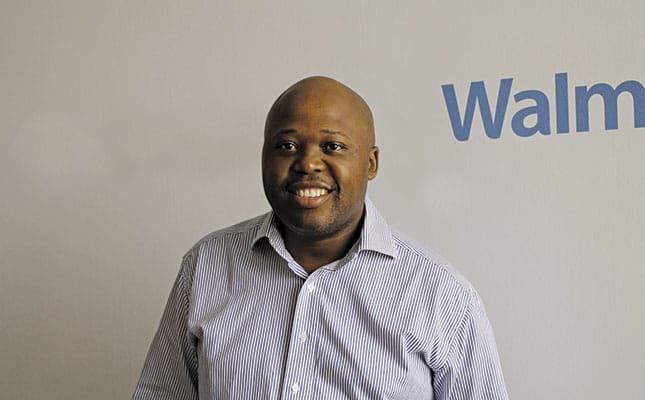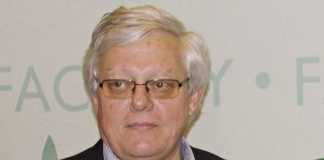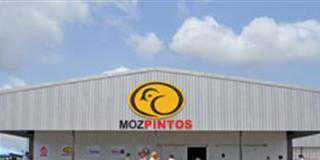
Photo: Peter Mashala
What is the Massmart supplier development fund?
The fund was created to help develop small businesses so they can become competitive and do business with us more efficiently. The fund will assist suppliers to improve the quality of their products and help to increase their production capacity, allowing them to deliver the required volumes while receiving the necessary working capital. Supporting these suppliers will also diversify our supply chain.
READ:How technology can help the fresh produce sector
Last year, we launched the Ezemvelo Direct Farm Programme in Limpopo, which is aimed at developing smallholder farmers to become successful suppliers. We’ll be spending about 40% of the total supplier development fund on this project, while 60% will be spent on the development of manufacturing and services.
Will the suppliers be restricted to supplying Massmart exclusively?
There are no exclusivity or restrictions attached to this project. As long as suppliers fulfil their commitments to us, they are welcome to supply anyone else.
What prompted the company to initiate this fund?
Although the competition commission instructed us to spend R200 million instead of the initial R100 million, it was a Massmart initiative from the onset. We chose to do this because we knew it was the right thing to do. We have now been doing supplier development for two years and have seen the great impact it has had on people’s lives. We certainly don’t view spending money on helping suppliers to do business with us as a punishment.
Why did you not appeal the competition commission’s ruling to increase the fund?
We did not appeal to the competition court because it was an objective we had set for ourselves anyway. We had already decided that the supplier development fund would become a permanent fixture.
What impact will the increase have on the initiative?
The increase will give us an opportunity to expand the project to a greater number of farmers. We’ll also be able to include other commodities much sooner.
What are the main barriers to entry for small suppliers wanting to enter the mainstream supply chain, and how are you addressing the problem?
There are a number of challenges, of which the biggest is access to finance. Every enterprise wants to expand, but small farmers are not able to because they cannot get access to finance. Some smallholder farmers also lack the technical skills necessary to produce quality products suitable for retailers. Transport and infrastructure costs pose additional problems.
We launched the Direct Farm Programme to address these issues and have partnered with TechnoServe, a company experienced in agricultural development. We also partner inexperienced farmers with commercial farmers to ensure the transfer of skills. Business skills are part of these.
At Massmart, we don’t consider the Direct Farm Programme to be a social responsibility project; we’re doing it for business purposes. Therefore our suppliers must be fully aware of all the business implications when we place orders with them. They also need to understand the difference between turnover and profit so they can invest some of their earnings into growing their businesses. As part of empowering our suppliers, we’re funding training programmes for them. Transport costs are subsidised from the fund, and we assist with infrastructure development to a limited extent.
How do these small-scale farmers benefit from this fund?
The greatest benefit is access to markets. Ordinarily, smallholder farmers struggle to find suitable markets. As part of the Direct Farm Programme, we guide farmers through nine annual harvests and then offer them a guaranteed market for their products – an off-take agreement. We train them in business and technical skills and also provide them with input financing. This is the only part of the project where we expect repayment, but even here the farmers benefit by getting an interest-free loan.
How does a farmer become supplier?
TechnoServe helps us identify farmers and bring them on board. But prospective suppliers can also phone or email us. We then send an agronomist to conduct an assessment of their farms. We also organise roadshows from time to time.
However, it’s important to bear in mind that the region they come from will dictate the crops they can grow.
Does Massmart procure its fresh produce solely from this initiative?
Because Massmart is new to fresh produce, we were advised that our point of entry should be vegetables and fruit. But, we are not focusing that much on fruit because fruit trees take years to become productive. Plans are also underway to extend our programme to other commodities such as poultry, pork and beef in the near future.
How many smallholder farmers are involved in the programme and how much fresh produce do they deliver collectively?
Last year we had 40 individual smallholder farmers. Collectively, they supplied 514t of produce. This year, we have 162 smallholder farmers, collectively farming 251ha. We are expecting between 3 000t and 4 000t of fresh produce from them.
What percentage of fresh produce is secured from the development programme farmers and how much is sourced from commercial farmers?
Our first harvest and deliveries took place between August and December last year. For that period, produce from smallholder farmers represented 2,2% of the total direct procurement from farmers. We would like to grow this representation to 7% for the current year and have set a goal to eventually achieve a 30/70 spilt between smallholder farmers and commercial farmers. These are ambitious goals but we remain committed to working towards them and we’ll be tracking our progress carefully.
Massmart said it hoped to attract more than 1 500 black farmers to its supply chain in the next five years. How will this be achieved?
We have an obligation to ensure that everybody we bring on board succeeds. This is why we’ve appointed TechnoServe as consultants to work with the farmers. We set ourselves a target of 1 500 black farmers because we believed this was an achievable number, given the fact that the country has enormous tracks of unused, arable land. This number is also aligned with Walmart’s goals.
Globally, Walmart procures produce from one million farmers, spending about US$1 billion (R10 billion). We estimate that we’ll be spending R2 billion to procure fresh produce over the next five years. This figure is based on our continued growth and converting several existing stores to enable them to offer fresh produce. Thirty percent of the total amount will go to developing smallholder farmers.
Which criteria do you use to select farmers?
We are gradually scaling our programme to be in line with our business growth. We are now active in four provinces and have plans to enter two more provinces by the end of the year. Our base requirements are that the farmer must be a smallholder or a member of a smallholder co-operative, must be in production and have experience in producing for-sale-to-market produce, and must be willing to undertake training. If found suitable, he or she must then undergo a farm site review. The final selection is a consultative process held with our commercial buyers.
Contact Mncane Mthunzi on 011 797 8676.
This article was originally published in the 19 July 2013 issue of Farmer’s Weekly.













